Kate Jones reveals she hasn’t put her daughter to bed for years
As Tourism and Innovation Minister, Kate Jones is out at functions most nights and misses bedtime. The unexpected upside of working from home during the COVID-19 pandemic is spending more time with her children than she has in the past five years.
U on Sunday
Don't miss out on the headlines from U on Sunday. Followed categories will be added to My News.
Kate Jones is perched in the corner of the walk-in wardrobe, holding the phone to her ear with one hand and the door closed with the other.
Her youngest, Grace, 6, has already had a meltdown during a phone call with Brisbane’s Lord Mayor, and Thomas, 10, accidentally screened a call from Premier Annastacia Palaszczuk, unsure who “Stacia” was when it flashed up while his mother was in another room.
Not unlike working parents across Australia, Queensland’s Innovation and Tourism Minister has made a mental list of the best hidey-holes to seek out for important calls as she and husband Paul Cronin settle into the hectic hum of home isolation while working and schooling their two kids.
And for the first time in five years, Jones is home for dinner. Every night.
‘It sucked my soul out’: Star’s 40-day COVID-19 battle
Life after Steve: Terri Irwin in her most candid interview
It’s a massive change for the high-profile member of the Palaszczuk Government, who is doing her best to look for the personal silver linings out of a crisis she knows has devastated so many families and the businesses she is passionate about representing.
In the lead-up to what will be a strange Mother’s Day – the first she won’t spend with her beloved mother and grandmother – and conscious that COVID-19 has taken so much from so many, the 41-year-old has been reflecting on what she’s grateful for.
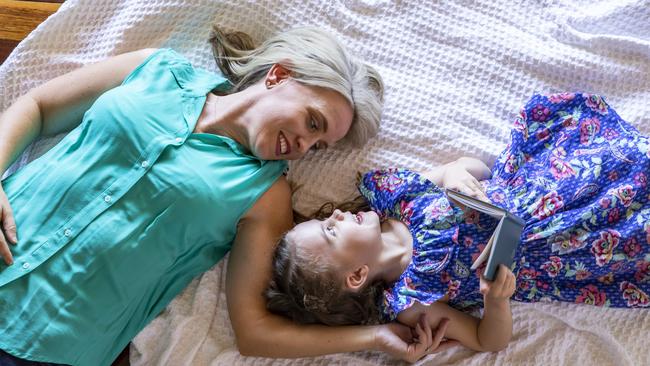
“For me it’s been months and months of just hearing devastation and I think it does make you stop and be grateful for what you have, and understanding that other people are doing it really tough and being mindful of that,” she says.
“For Mother’s Day, I just feel so grateful to have this time with my children.
“I haven’t spent this much time with my children in five years, particularly not Grace.”
Jones gave birth to their second child during a three-year stint on the sidelines after she lost her inner-city Ashgrove seat, now Cooper, to former premier Campbell Newman in the 2012 Labor bloodbath.
She says it was a big decision to run again in 2015, knowing how hard the juggling act would be.
However hard she thought it would be, it only got more intense when Palaszczuk pulled off her gobsmacking election win and Jones was once again elevated to Cabinet. Having already served as environment minister at age 31 under Anna Bligh when Thomas was born, Jones is still the only Queensland minister to become a mother while in office and has always been honest about the difficulties of managing motherhood with such a high-profile job.
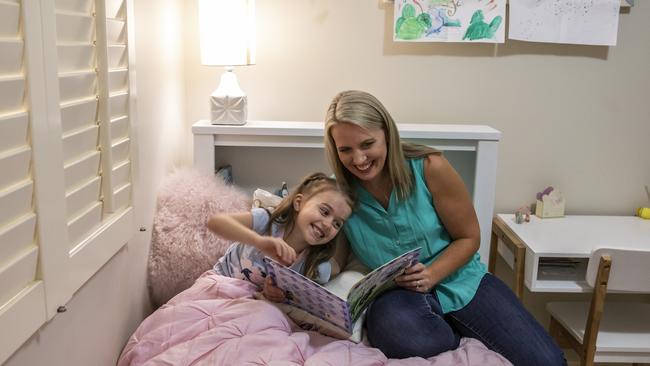
“When I put my hand up to run (again), Gracie was 10 months old, a baby,” the now veteran minister recalls.
“Now she’s a six-year-old child. So for her whole living memory I’ve been working in this job, so for Mum to be home for dinner is a total change, so that’s been nice.”
Only a few months ago, it wasn’t uncommon for the politician to be out four or five nights
a week – rushing home from the office for a quick outfit change before dashing back out the door.
And despite the real challenges of life in isolation, she has relished trading in those “snappy and stressed” scenes for afternoon scooter sessions, explaining concepts at homeschooling lessons and tucking in the kids before working into the night at the kitchen table, husband by her side.
“I guess that’s the other thing in my mind, that it’s going to end at some point, so for me I’m trying to be present when I’m here too,” she says.
But despite enjoying the extra time with her children, she’s missing spending time with her own mum, Ann, and 92-year-old nanna Marie a lot.
Having had to step back from caring for Thomas and Grace during the pandemic to focus on Marie, Ann now only sees her daughter and grandchildren on their daily “scoot-bys” in which they roll the few streets that separate their homes to wave from the road.
“I couldn’t have this job without my mother,” Jones admits.
“So it’s probably the longest time that Mum and I have gone without seeing each other since I was a late teenager, when you move out of home and think you know everything.
“So I think that’s sad and I can definitely tell when I talk to her that she’s missing the kids.
“Maybe she’s missing me. I don’t know, but she’s definitely missing my children,” she quips.
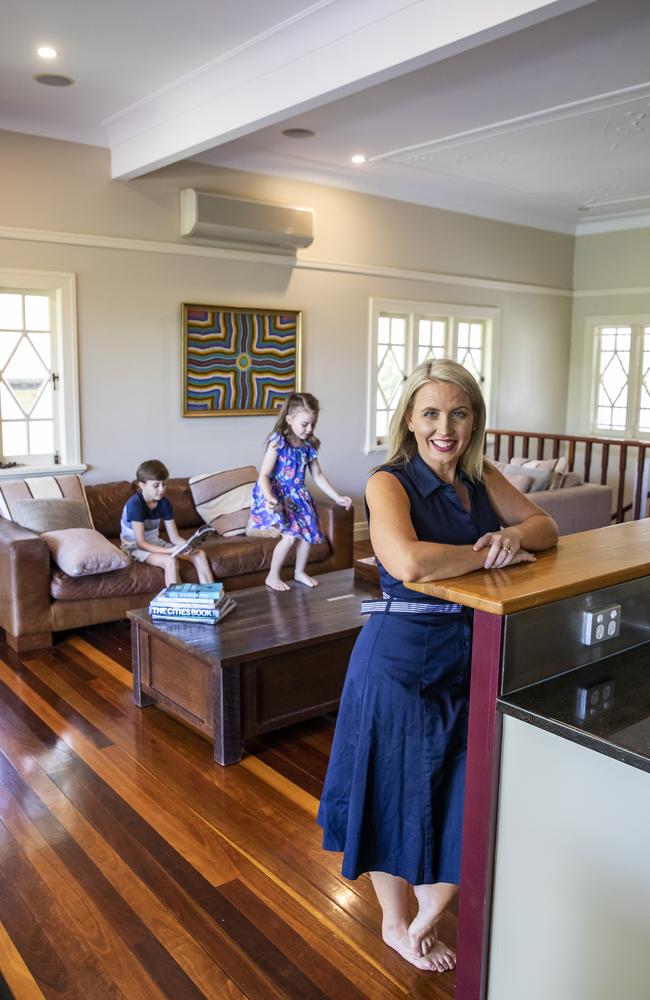
It’s a thought that strikes suddenly and one that brings down her positive persona for a few beats; this year will be the first Mother’s Day that Jones won’t be able to hug the two women she credits with shaping so much of who she is today.
Wiping away tears, she reflects on the families losing their loved ones to the devastating pandemic sweeping the world, stealing so many souls.
“So maybe that’s it, maybe this Mother’s Day we feel grateful that we’ve got our mums and our nannas because for other people having
a Mother’s Day this year, they won’t be having their mothers and their nannas because they’ve died to COVID-19.”
Brought up in a working-class family in which she watched her mother struggle while raising four kids alone after her parents divorced when Jones was in primary school, she says her family are “practical people”.
And so they’ve helped her learn some practical lessons, albeit hard ones at times, like the fact that “life’s pretty tough” but you need to enjoy the “good moments”, that “you’re not special”, and that you can’t stand on the sidelines of life.
They’ve impressed upon her that you have to get in there and make a difference where you can – that “your footprint has to be a good one”.
As a four-year-old, Jones would accompany Marie when she volunteered with Meals on Wheels. She would hang out in the kitchen, watching the matron of the family help others.
It’s an irony not lost on her that the woman instilled with a passion for community as a girl is now in charge of the government’s Care Army – a 29,000-strong force entrusted with protecting the older and most vulnerable among us by dropping off groceries, meals and medication, providing connection through phone and video calls, or dropping around to help with chores like mowing the lawn.
“I want to teach my kids that you have a role to play in fairness,” she says when asked what it is she wants to pass on to her own kids.
“That fairness isn’t something that just happens. Fairness is something you have to work towards and everyone has a role in that.
“And you’re not that special,” she laughs, adding that she wants them to grow up with the same lessons that grounded her for adulthood.
“I was never brought up to feel you’re amazing, or you’re talented, or you’re special. Being grounded is very important.”
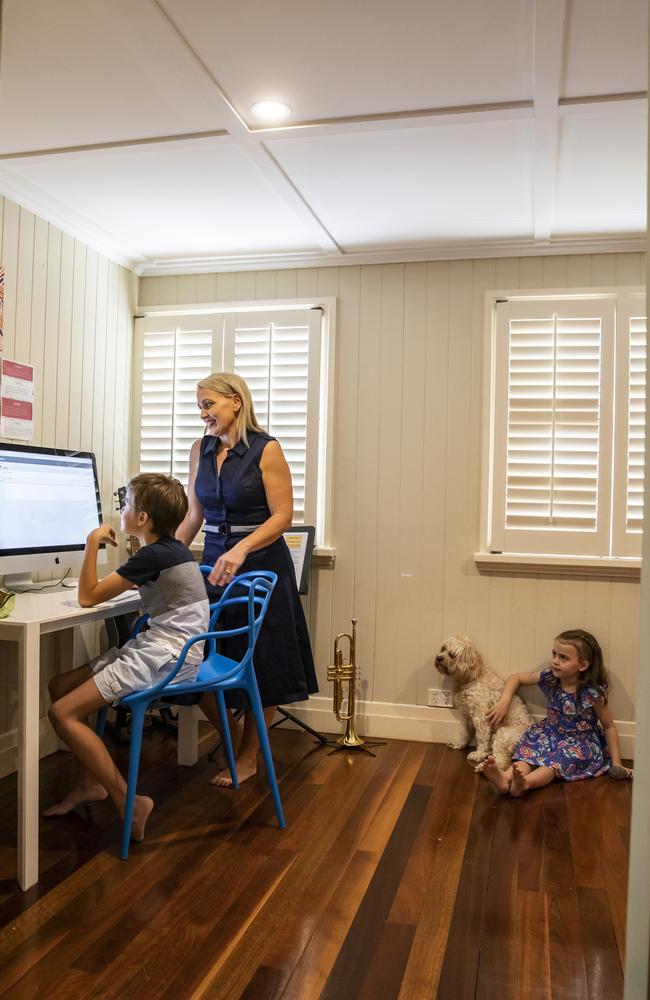
Jones acknowledges there are many women in the workforce, her among them, who are only there because of the support of their parents.
She says it’s a shame the ability to properly thank them has been curtailed this Mother’s Day because of COVID-19 – a virus that’s also shone
a spotlight on the integral role of grandparents in the community.
Recent studies have shown grandparents in Australia contribute the equivalent of about $4 billion annually in childcare value. They’ve also found families who rely on non-formal childcare are less stressed than those that don’t, or can’t.
And as the country charts a path through the pandemic and an eventual return to more normalcy at work, that won’t be possible for some families who usually rely on grandparent care while social distancing still prevents over 65s from having contact with under 16s.
Jones says this is a conversation that will have to be had, as well as what employers and employees take from this period in which it has been proven that working from home can work.
“I do think that flexibility should be there, the technology’s there, we’ve actually all got a lot better at doing it. I think that instead of always a balance between home life and work life, is it about a split between work being at home and in the workplace?” she says.
“I mean there’s already predictions that we might actually see a lot of leases in the city because people won’t need the space that they’ve had so I think it’s going to be one to watch.
“I think a lot of people have demonstrated that the way that technology has changed, particularly with face-to-face interaction on technology, then there’s probably more confidence that people are actually working at home as opposed to doing the housework.”
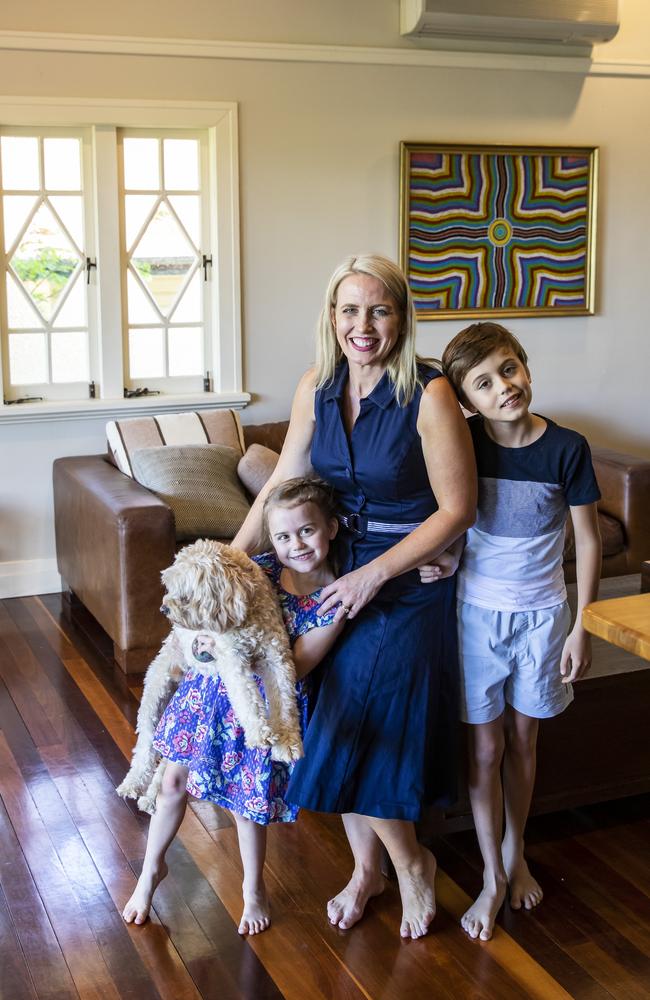
She wonders whether time is one tonic we haven’t prescribed enough of in the past to heal some of society’s ills – unhappiness, mental illness and family stress.
“Maybe ‘time’ is something that we put into the mix to actually say, you know what, today I just actually need to work from home,” she says.
“Instead of getting up, doing the travel, putting on the clothes, the makeup, the heels, the stockings, maybe I can just be way more productive by sitting here in my pyjamas, belting out the work.”
She also thinks it’s a chance to reframe family relationships in the context of the work-life balance.
“I think there is a broader conversation to be had about also father’s roles,” she says.
“One of the things early in the lockdown was just seeing dads home, going exercising with their kids during daylight.
“I remember getting quite emotional about seeing just how awesome it is to see that these fathers actually get to have some time with their children when they would normally always be at work.
“Family time is really important and often you sacrifice family time because of your job.
“But when you’ve lost your job, and I have lost my job in a very public way, at the end of the day family is – it’s cliched – but it is what matters.”


